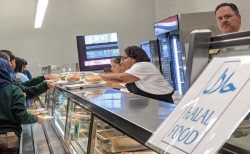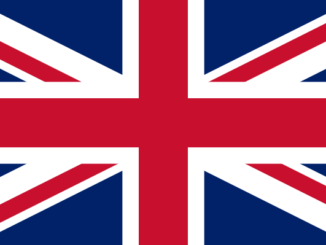 Halal school lunches have been in the news lately.
Halal school lunches have been in the news lately.
Last spring, school districts in Buffalo, New York, and Atlantic City, New Jersey, announced they would begin pilot programs to serve halal lunches at some of their schools. New York City announced it would expand its existing halal program to another 11 schools, bringing the total up to 43 schools offering halal meals.
Meanwhile, some public schools in France have cut back their food selections and no longer offer more than one type of meat. So, if the meat served on a given day is pork, students whose religion proscribes eating pork can no longer count on being able to choose another type of meat not forbidden by their religion.
France and the United States both have a history of separating church and state, but their concepts of separation differ. In the United States, the idea of separation was born out of the various states’ and communities’ different religious identities. Separation meant that the government should remain neutral between the different religious communities. According to the First Amendment, the state may neither endorse a particular religion (Establishment Clause) nor obstruct people from following their faith (Free Exercise Clause). Any attempt to accommodate religion in the public square becomes contentious and raises conflicting constitutional principles. For example:
For the public schools to offer religiously sanctioned meals will involve religion in government-run schools to some extent. How much? And will it cross the invisible threshold of impermissibly confusing the two in violation of the Establishment Clause?
Is the state offering religiously compliant meals to all students, or just some? To students of all faiths, or just one? For instance, will the public schools offer kosher meals to Jewish students who want them? (New York City does.) If not, the school district runs the risk of violating the Establishment Clause by favoring one religion above others. It may also violate the Constitution’s guarantee that all people are entitled to equal treatment under law (i.e., equal protection of the law). Despite this, feature articles lobbying for halal meals often present the state’s failure to provide hot food — especially hot meat meals — conforming to religious requirements as itself an unbearable form of persecution (see, e.g., here, here, and here).
For meals, especially meat meals, to comply with religious standards usually adds to their cost. Is the state spending more on halal meals than on non-halal meals? If so, that may violate the Equal Protection Clause.
The French idea of laïcité, or secularism, has been to push religion out of the public square altogether. Since laïcité was codified in 1905, many Muslims have immigrated to France, and in more recent years a number of them have pushed for public deference to their religious practice.
Starting in 1984, cafeterias in French public schools have offered non-pork alternatives. The meals did not fully comply with religious strictures (i.e., they were not halal or kosher), but less obviously so. In 2015, after the attack on Charlie Hebdo (as well as a kosher supermarket, the Hyper Cacher), the town of Chalon-sur-Saône in eastern France decided to stop providing the alternative. A court later reversed that decision. On October 16, 2020, French teacher Samuel Paty was beheaded for teaching a class about free expression featuring the Charlie Hebdo cartoons of Muhammad. In December 2020, France’s top administrative court ruled that laïcité neither requires schools to serve pork-free meals to accommodate personal religious beliefs nor prohibits schools from doing so.
On October 2, 2020 — days before the Paty murder — French President Emmanuel Macron delivered a speech on laïcité in which he criticized local officials who “under pressure from groups or communities have considered imposing meals prepared according to religious guidelines at schools’ cafeterias.”
Will French public schools continue pushing back against any effort to accommodate Muslim (and Jewish) dietary sensibilities? Can American public schools’ provision of halal meals survive a constitutional challenge? Stay tuned.



